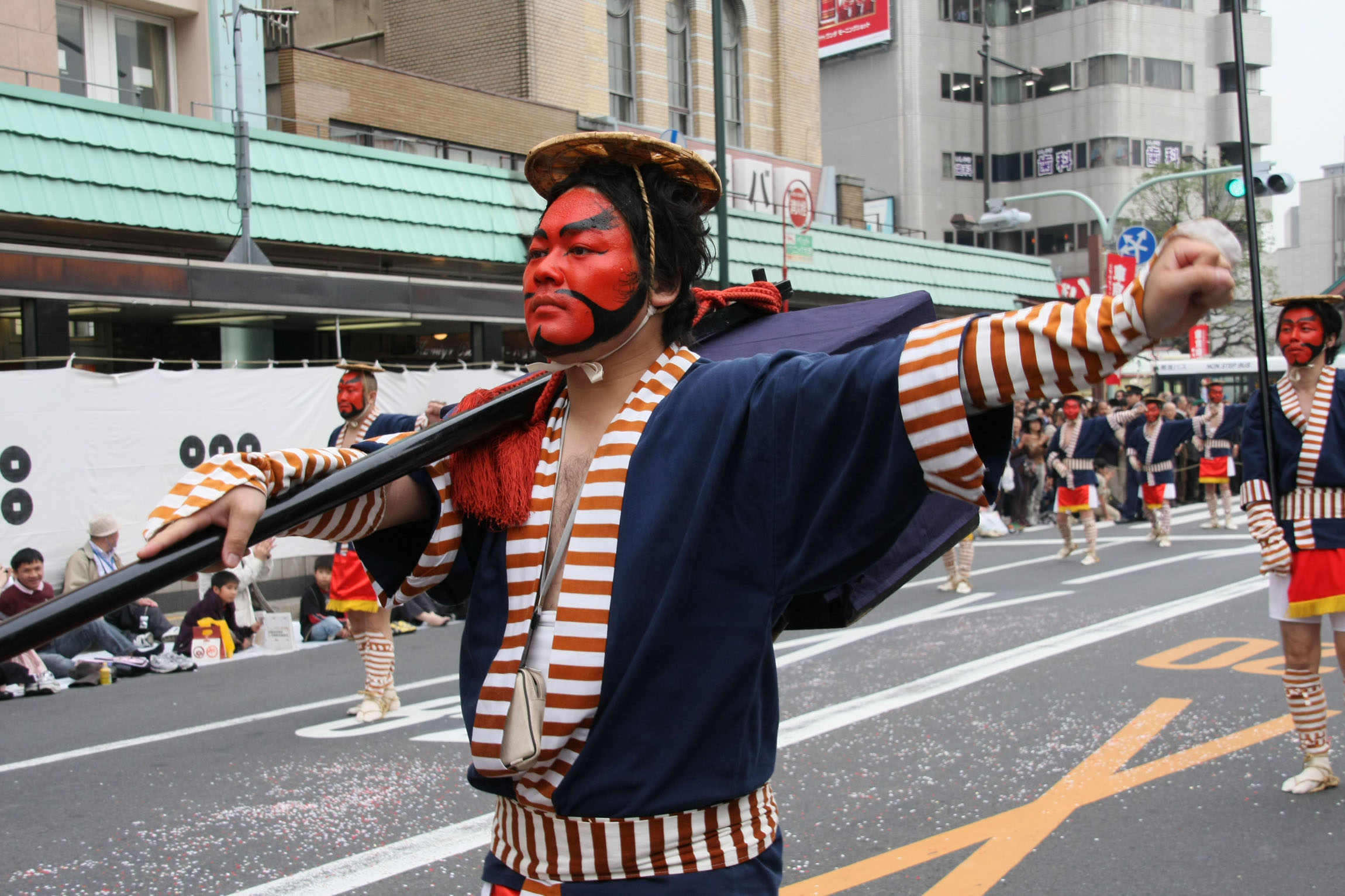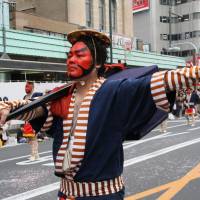Asakusa is a busy but attractive area of Tokyo that still retains much of its historical charm. Legend has it that, in the year 628, two fishermen found a statue of the bodhisattva Kannon mysteriously floating in the Sumida River. The chief of the village enshrined the statue in what is now Sensoji Temple, Asakusa's main tourist attraction.
Rich with culture and historical references, this area still has original structures from the Edo Period (1603-1867), which has made it beloved by the local community and tourists. Tokyo Jidai (Historical) Festival, which takes place each year on Nov. 3, Japan's Culture Day, celebrates the area's extensive history.
Through a number of decorated floats featuring performers in traditional Edo Period costume, this festival tells the history of Asakusa from the foundation of Sensoji Temple to the present day. Participants dressed as important historical figures will parade the streets and highlights include horseback warriors and acrobatic performances by firemen.
Tokyo Jidai (Historical) Festival takes place on Nov. 3 and starts at Sensoji Temple at 1:30 p.m. before parading the surrounding area of Asakusa. For more information, visit: www.gotokyo.org/en/kanko/taito/event/asakusazidai.html.




















With your current subscription plan you can comment on stories. However, before writing your first comment, please create a display name in the Profile section of your subscriber account page.